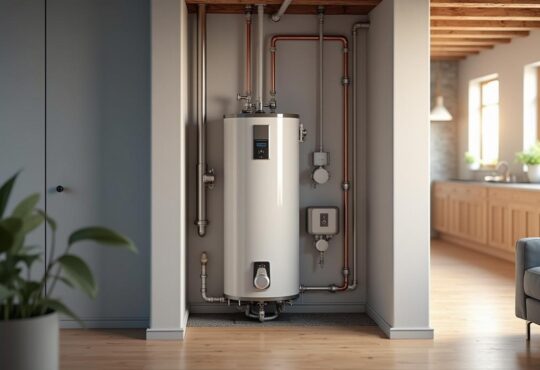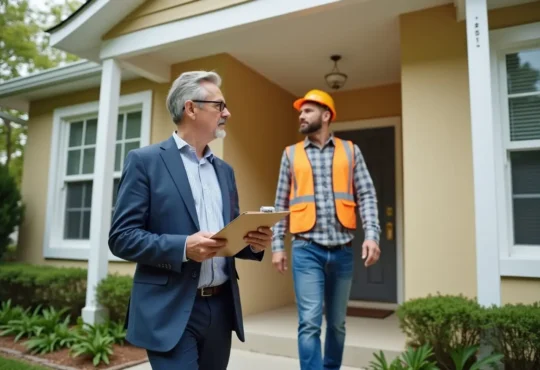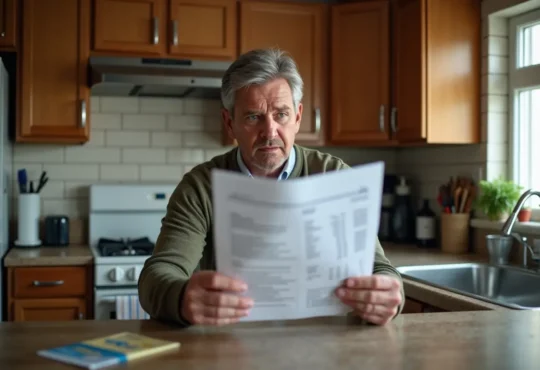
Is Plumbing a Good Career?
Considering a career in plumbing offers tangible skills and steady job opportunities. Even in a rapidly changing world, plumbing remains vital for every home, business, and public facility. Water systems, gas piping, and efficient drainage systems all rely on skilled experts who can fix and maintain them with precision. That ongoing demand makes this trade a unique blend of security, hands-on work, and personal satisfaction.
In many cases, people overlook the wealth of possibilities that come from a profession in the plumbing trade. They might assume it only involves the occasional drain cleaning or emergency plumbing services. Yet the reality is far more interesting, with diverse specializations, flexible hours, and a clear path to higher earning potential. If you’ve ever thought about learning a new craft that combines mental problem-solving and physical skill, keep reading to discover what plumbing has to offer.
Contents
A Look at Plumbing Technician Roles
A plumbing technician handles much more than clogged drains. These professionals install water supply systems, keep sewer lines flowing, and ensure plumbing code compliance. They might work on a residential plumbing project today and manage a commercial plumbing setup tomorrow. Every situation calls for knowledge of building codes, the right plumbing tools, and the ability to adapt quickly.
There is real satisfaction in seeing an immediate impact from your work. People breathe a sigh of relief when their plumbing repair is done correctly. From replacing old pipes to performing advanced sewer line repair, there’s an element of problem-solving in every step. Many technicians also branch out to include HVAC services, especially if they pursue broader mechanical training.
Hands-On Experience With a Plumbing Apprenticeship
Gaining expertise often starts with a plumbing apprenticeship. This path lets newcomers work under a licensed plumber, honing critical plumbing skills, safety knowledge, and best practices. On-the-job lessons can be more valuable than classroom lectures because they show real-life challenges. You don’t just learn about pipefitting jobs you try them firsthand.
Structured apprenticeships often also involve formal plumbing training at local plumbing schools or technical institutes. This dual approach gives future pros a better understanding of water supply systems and advanced plumbing installation. It also helps them prepare for plumber certification exams, which can boost credibility. Combined with sound experience, a certificate strengthens a resume and leads to stable positions or even self-employment.
Residential and Commercial Plumbing Journeys
One aspect that attracts people to this field is the variety of work settings. Residential plumbing jobs often revolve around maintaining home fixtures, repairing leaks, and improving outdated systems. Homeowners depend on you for everything from emergency plumbing services to routine plumbing maintenance. In many cases, these tasks involve personal interaction, building trust with families who rely on your expertise.
Commercial plumbing, on the other hand, involves bigger systems and stricter building codes. Projects may include large-scale pipefitting and plumbing installation in offices, schools, or shopping centers. The networks are more extensive, requiring knowledge of industrial-grade Plumbing tools and materials. Despite these differences, both residential and commercial plumbing possibilities offer steady demand and good earning potential.
Stepping Into Sustainable Plumbing Practices
Today’s world calls for eco-friendly approaches to daily tasks, including how we manage water resources. Sustainable plumbing practices help conserve water and reduce energy usage. Many clients look for skilled installers who can optimize systems, reduce leaks, and suggest water-saving fixtures. This trend opens doors for plumbers who want to lead in emerging technologies and environmental solutions.
Sustainability isn’t just about installation, though. It also involves ongoing plumbing maintenance to keep everything running efficiently. A drain cleaning approach that avoids harsh chemicals can protect the environment while still delivering effective results. By adding green strategies to your plumbing repertoire, you stand out in a growing market.
The Road to a Successful Plumbing Trade
Growing into a seasoned professional requires time, practice, and dedication. Whether you’re a newcomer aiming for a plumber job or an experienced technician looking to become a plumbing contractor, every phase offers its own rewards. Skills develop with each project, and as you move forward, you’ll notice improvements in your speed, accuracy, and customer satisfaction.
Once you gain experience, you can specialize in areas that suit your interests. Some focus on high-rise commercial plumbing projects, while others tackle sewer line repair or advanced pipefitting. Licensed plumber status often leads to positions that pay more, since employers value proven competence and reliability. With dedication, you could even expand into related fields like HVAC technician roles, maximizing your career potential.
Achieving Plumber Certification
A recognized plumber certification is a watershed moment for anyone in this industry. It shows you’ve met certain standards and can handle plumbing code compliance on any project. The rigorous exam process tests everything from problem diagnosis to the right usage of plumbing tools. An official credential builds confidence for both clients and employers.
Achieving certification typically requires a blend of classroom learning and practical experience. Many plumbers enroll in specialized plumbing schools to ensure they’re ready. They also take advantage of on-site training, where they gain insights into issues like sewer line repair under real-world conditions. Once you pass the exam, your certification can open doors to better jobs, higher pay, and stronger professional connections.
Plumbing Installation and Maintenance Essentials
One advantage of mastering plumbing installation is the ability to see an entire system come together from start to finish. You might set up fresh water lines for a brand-new building, ensuring that everything functions smoothly. This process demands a thorough understanding of local regulations and technical knowledge about pipes, sealants, and water supply systems. Overlooking small details can lead to big problems later.
Plumbing maintenance is equally essential. Regular check-ups and quick responses to leaks or blockages prevent expensive repairs over time. They also boost safety by preventing mold or water damage. By offering scheduled maintenance services, you strengthen ties with customers who appreciate proactive care rather than last-minute fixes.
Becoming a Specialist in Emergency Plumbing Services
Emergencies can happen at any moment. A burst pipe at midnight or a water heater failure in the early hours can’t wait. That’s where emergency plumbing services come in. By offering round-the-clock help, specialists build a reputation for reliability and fast response.
It’s great for those who enjoy unpredictable challenges and aren’t afraid of irregular hours. Emergency calls often bring solid pay, reflecting the urgency and complexity of the task. Even so, it demands mental and physical stamina, along with the ability to remain calm under pressure. If you thrive on solving problems quickly, this specialization might suit you well.
The Essential Tools and Techniques for a Productive Plumbing Career
A well-stocked toolkit is essential for both routine jobs and major repairs. Plungers, wrenches, and pipe cutters might be the basics, but skilled plumbers also need specialized instruments. Video inspection gadgets help detect issues deep within sewer lines, while advanced leak detectors keep you from tearing up walls unnecessarily. By investing in quality tools, you signal your commitment to professional standards.
Alongside tools, proper methodology is crucial. That might include preparing thoroughly before every job, checking your environment for potential hazards, and verifying building codes for each site. Mistakes in gas piping or water supply systems can lead to hefty costs and safety concerns. Staying current on new methods and technology strengthens not only your competence but also your reputation.
Balancing HVAC Services and Plumbing
A growing number of professionals cross-train as an HVAC technician. The synergy between heating, ventilation, air conditioning, and plumbing is strong in many modern buildings. Having dual expertise can boost your plumbing salary and client satisfaction. It also gives you a competitive edge when bidding on large-scale residential or commercial plumbing projects.
Cross-training doesn’t mean losing focus on your original craft. Instead, it enhances your overall knowledge of building systems. From water heaters to combined heating and water recycling solutions, there’s plenty of overlap between HVAC and plumbing. If you enjoy a varied workload and want to offer clients a more complete service package, this path might be worth exploring.
Pathways for Growth and Advancement
Many plumbers expand their business by taking on apprentices or hiring additional plumbing technicians. This step can help you transition from working for a company to becoming a plumbing contractor. By building a team, you can handle more projects, take on larger jobs, and grow your reputation in the industry. It’s also a chance to train newcomers, pass on good work habits, and develop a supportive environment.
Networking is another vital aspect. Attending industry events allows you to meet professionals from various fields, including pipefitting specialists and commercial plumbing consultants. These connections can lead to unexpected job opportunities or partnerships. Keeping an eye on trends like sustainable plumbing practices keeps you relevant and ready for whatever comes next.
Exploring Further Education
Those who crave continuous development find plenty of advanced courses and certifications available. Some programs focus on niche areas like green-building solutions or the latest plumbing code compliance standards. Others sharpen your business skills, which helps if you plan to run your own operation. By dedicating time to ongoing education, you remain adaptable and prepared for new challenges.
Plumbing training never really ends, because materials, technologies, and client needs keep evolving. The more knowledge you acquire, the better you can handle complicated projects, manage emergencies, or consult on large-scale pipefitting jobs. Even after you’ve earned multiple credentials, staying informed ensures your skills remain valuable. This industry rewards those who commit to growth and strive for excellence.
Working in plumbing can bring professional achievements and personal pride. Each successful sewer line repair or well-managed project helps individuals, families, and communities function smoothly. Whether you’re drawn by the idea of financial stability, recognition, or the desire to solve real-world problems, there’s a place for you in this field.
“`





 Hi I'm Joe.
Hi I'm Joe. 